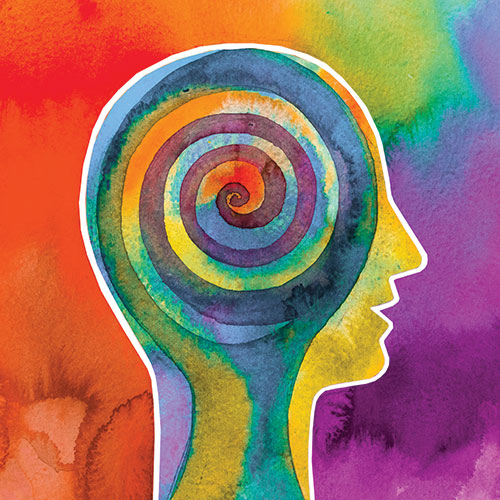Wellbeing lead

A few years ago, the word wellbeing was
a new entry in the medical lingo. However
in a short period of time there has been an
acknowledgement that wellbeing matters, and
this has accelerated healthy changes in the way
we work, the way we talk about fatigue, and the
way we’ve started looking out for one another.
Sadly, there’s a sense that a lot of initiatives use all the right
words but lack substance. We’re in danger of confusing the
wellbeing movement as an insurance policy, so that if and when
something goes wrong, organisations and their departments
feel covered. Trust-wide initiatives often don’t seem to have the
medical workforce in mind, even less so a unique
speciality like anaesthesia.
One consequence of these hollow gestures has been to further
cement scepticism. There is a compelling argument that the
NHS functioned perfectly well (arguably much better) before we
started worrying about one another as well as our patients.
Very early on during the pandemic I was asked by colleagues, as
the lead for ‘Health and Wellbeing’, what I was planning to do to
support the department? There was often a joke about
massages, or aromatherapy, and I dutifully smiled back.
I really couldn’t see how I could do a better job than our
excellent secretaries at keeping a finger on the pulse of the
department - monitoring sickness as they always had done,
advising us how to get a swab, and how long to isolate if we
needed to. So after a brief flirt at helping with these side of
things, I got back to the drawing board.
There was definitely a lot happening to keep the departmental
wheels turning. Astonishingly complex rotas were churned out
overnight with little or no dissent. As a large hospital in
the North of England, we knew that things had been really tough
for a lot of colleagues elsewhere. We made contingency plans,
escalation rotas, started being first-on resident on-call, second on
resident, even third on-call. I sat in meetings where stress
levels were understandably high (the PPE scandal, the Italian
experience etc).
This is a once-in-a-generation opportunity to take the wellbeing movement and ensure that, with the insights we have as anaesthetists, we contribute to it, shape it, and run with it.
Colleagues started getting tired, some were losing weight, some
were clearly not sleeping well. A lot of fodder for the lead for
support and wellbeing. The pre-COVID NHS wasn’t in
tip-top shape - there was a level of psychological and emotional
weariness, chronic frustration and low morale.
I racked my brains and thought about what could be done
to best to support the majority. I liaised with our clinical
psychologist who offered her skills, and we toyed with the idea
of offering a debrief-style appointment to all consultants. We
talked about adding a wellbeing component into staff appraisal.
Nothing jumped out as being a great idea - we concluded
that forcing psychological help on all is a great way of alienating
those that really need it.
So what are the answers? I am afraid there are no simple ones.
We’ve seen over and over again what happens when doctors sit
back and let others, arguably less qualified, take the
lead on shaping the way we work, the hospitals and systems
that we use to look after patients. This is a once-in-a-generation
opportunity to take the wellbeing movement and
ensure that, with the insights we have as anaesthetists, we
contribute to it, shape it, and run with it. It will be easier to let the
managers and our nursing colleagues, and our juniors take it
on - and I hope they all do. But if we remain as passive observers,
we will alienate ourselves and exacerbate the problems that all
anaesthetists face, now and in the future.
Like any overused phrase, the impact can be lost. That
doesn’t mean that wellbeing, resilience, self-compassion and
mindfulness have run their course. The last few months have
been an opportunity to take stock, internalise, and assimilate
good psychological traits. It may be yoga, improving diet,
exercise, living alcohol-free, prioritising sleep, working a little
less, or even a combination. The real benefit comes when we
put it into practice, when we demonstrate it, when we look out
for one another in an authentic, genuine and individual way. No
system will ever substitute for this.
I am happy to hear from readers at: [email protected]
Alex Bonner
Consultant Anaesthetist
Lead for Support and Wellbeing
Lancashire Teaching Hospitals NHS Foundation Trust